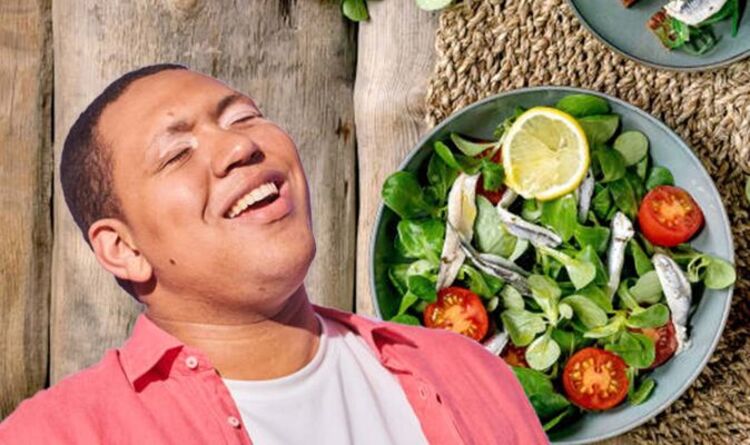Mental health: Dietician warns of three mistakes people are making in their diets
This Morning: Dr Nighat on physical impacts of mental health
We use your sign-up to provide content in ways you’ve consented to and to improve our understanding of you. This may include adverts from us and 3rd parties based on our understanding. You can unsubscribe at any time. More info
Mind mental health charity says eating a healthy diet can do a lot to improve your mood and sense of wellbeing. The charity also notes: “We can often put a lot of pressure on ourselves to eat a healthy diet, but it’s also important to enjoy the food you eat and not be too hard on yourself.
Aimee Newton, a Registered Dietitian working at Spire Hull and East Riding Hospital, has outlined three dietary mistakes she worries many Brits are making, and how they could be impacting our mental health.
Firstly, she said we are not drinking enough. She said: “We need sufficient energy to maintain the structure of our brain and nervous system.
“Dehydration can affect your brain’s ability to produce energy and can obstruct the brain’s production of ‘happy hormone’, serotonin.
“This is because the body needs water to transport amino acid, tryptophan, across the blood-brain barrier to convert it to serotonin.”
READ MORE: Cardiovascular disease: The fruit which may reduce risk just two hours after consumption

She also said eating enough variety is important. She noted: “There are many studies suggesting a link between reduced diversity of the bacteria in our gut and mood disorders.
“This is because the gut microbiome helps turn the food we eat into different molecules which enter our bloodstream and communicate with the brain.
“Some of these are neurotransmitters such as serotonin and dopamine, which can then influence mood and behaviour.
“It is, however, too early to make conclusions as to which exact bacterial strains play a role or suggest specific concentrations of these bacteria which are optimal in our gut as there is a lack of human studies in this area.”
Ms Newton said: “However, watch this space in the future. What we do know is eating foods like wholegrains and fermented foods that increase the diversity of the bacteria in our gut can be beneficial to overall health and mood.”
The dietician also said not getting the right vitamins can affect your mental health.
She said: “Some vitamin deficiencies have been linked to low mood. These include vitamins B6, B12, folate and vitamin D.
“Furthermore, western diets which are high in processed foods, refined grains, sugar, and fat have been more closely associated with depression in some studies.”
Despite these dietary hacks, the dietician notes it’s important to stress that mood-boosting foods alone cannot treat depression, and if you’re really struggling with your mental health, you should always see a doctor.
Indeed, the NHS says: “If you need help for a mental health crisis or emergency, you should get immediate expert advice and assessment.
“It’s important to know that support is available, even if services seem busy at the moment because of coronavirus.”
A GP can advise you about helpful treatments and also help you access mental health services.

Mind charity says if you feel like you might attempt suicide, or may have seriously harmed yourself, you need urgent medical help. Please:
- Call 999 for an ambulance
- Go straight to A&E, if you can
- Or call your local crisis team, if you have their number.
The charity says if you can’t do this by yourself, ask someone to help you.
“Mental health emergencies are serious. You’re not wasting anyone’s time,” Mind says.
Source: Read Full Article
